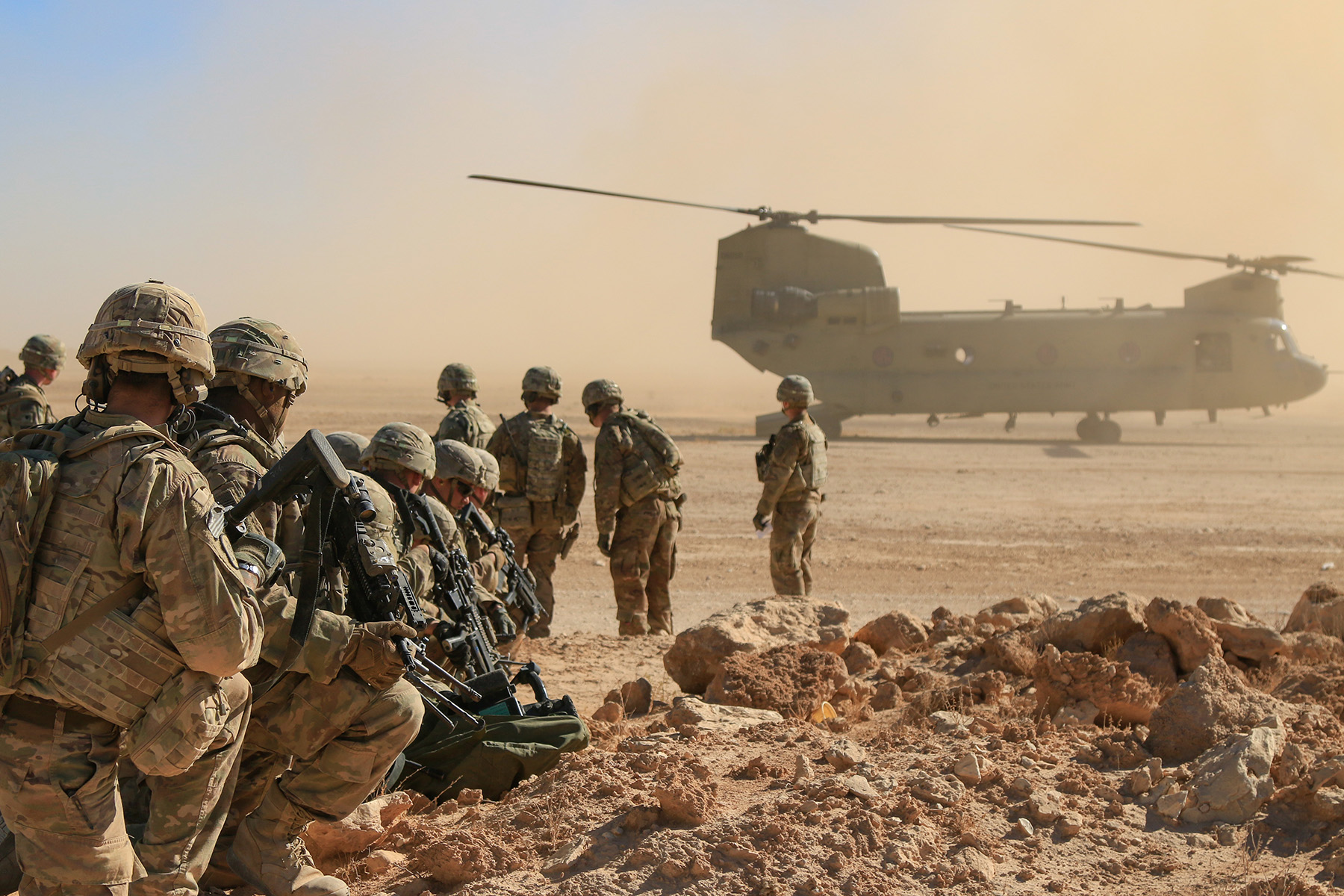Following the terrorist incidents that occurred in the US on September 11th, 2001, the administration led by US President George W. Bush initiated the counterterrorism campaign, garnering international support from its allies. The primary objective was to dismantle Al-Qaeda, the organization held responsible for orchestrating and executing these acts of terrorism, while also mitigating the potential emergence of future terrorist threats originating from the Middle East region. The focal points of this campaign were Afghanistan and Iraq, serving as the primary theaters of engagement in 2001 and 2003, respectively.
The debate surrounding the achievements and shortcomings of US policies towards the Middle East has resurfaced within the area after twenty-two years. This resurgence can be attributed to the significant alterations that took place in the region following the terrorist attacks in the US. These attacks prompted substantial amendments in US policies and priorities across consecutive administrations, consequently leading to a diminished emphasis on the Middle East in favor of the Indo-Pacific region.
Prominent Issues
The most prominent issues raised with the twenty-second anniversary of the events of September 11 regarding US foreign policy in the Middle East are the following:
1 – The escalation of sectarianism in Iraq and the wider region: The nations within the region continue to endure the enduring repercussions of the policies implemented by successive US administrations after the events of September 11, particularly in Iraq. In March 2003, under the leadership of President George W. Bush, the US government initiated a military intervention against the ruling regime led by Saddam Hussein. This military campaign, spanning two decades, ultimately resulted in the fracturing of Iraq along ethnic and sectarian lines. Non-Arab regional powers have since assumed control over the destiny of the Iraqi state, lending support to political factions advocating for the withdrawal of US forces from Iraq. Furthermore, these powers have even undertaken ongoing military operations against US military bases situated within Iraq.
The war not only exacerbated sectarianism in Iraq but also across the Middle East, thereby empowering Iran to expand its destabilizing influence in the region. Moreover, it played a significant role in the transformation of Iraq into a sanctuary for various terrorist organizations, most notably IS, which gained control over extensive territories in Iraq and Syria to establish its self-proclaimed caliphate.
2- The resurgence of the “Taliban” in Afghanistan: Following the terrorist attacks on September 11, the United States spearheaded a global campaign against terrorist entities worldwide. In October 2001, a military intervention was launched in Afghanistan to dismantle the “Taliban” regime, which had been providing support to Al-Qaeda. However, after enduring a costly and protracted US military engagement spanning two decades, the administration of US President Joe Biden opted to withdraw from Afghanistan on August 31, 2021, just prior to the twentieth anniversary of the September 11th attacks. This withdrawal process was marked by disorder and chaos and has resulted in the return of the “Taliban” to power. There are concerns that this development may once again transform Afghanistan into a haven for terrorist organizations, as indicated by certain US assessments. Despite the Taliban’s assurances that it will not permit terrorist groups to exploit Afghan territory for launching attacks against the US, its allies, or any other nation, apprehensions persist.
3- Incomplete successes in countering terrorism: Despite the shortcomings of US endeavors to eradicate the root causes of terrorism following the September 11th attacks, the US, in collaboration with its international and regional allies, effectively diminished the influence of Al-Qaeda and IS, whilst targeting their most prominent figures. Al-Qaeda is presently at its most vulnerable stage after the successful elimination of its leader, Ayman al-Zawahiri, during a raid on his concealed location in Afghanistan on August 2, 2022. Prior to that, Osama bin Laden was eliminated in his hideout in Pakistan on May 2, 2011, alongside the assassination of key IS leaders and notable terrorist operatives.
Despite the notable achievements made by the US in undermining Al-Qaeda and ISIS, including the successful elimination of their key leaders, it is important to note the existence of active terrorist organizations that possess greater power and influence than both groups. For instance, Boko Haram movement in Mali and Shabab al-Mujahideen in Somalia are formidable organizations that continue to engage in terrorist activities to this day. It is also anticipated that their terrorist operations will escalate in light of the multiple military coups occurring in Africa, particularly in Mali, Burkina Faso, and Niger, which serve as focal points for al-Qaeda’s activities along the African coast. Additionally, it is crucial to recognize the presence of thousands of ISIS loyalists in Syrian camps, who possess the capability to reinvigorate the organization’s operations.
4- The erosion of trust in the US as an ally: The policies pursued by the US in the Middle East after the events of September 11th, particularly the disorderly withdrawal from Afghanistan on August 31, 2021, and the abandonment of its allied Afghan government, have contributed to a decline in the confidence placed by numerous allies of the US in the region in its security commitments towards them. Consequently, these allies have sought to diversify their options and international relations, a discernible trend that is substantiated by public opinion polls conducted in the region. Notably, more than half of the respondents in a survey conducted by the Washington Institute for Near East Policy, the findings of which were made public on November 9, 2022, note that the US has become an unreliable partner. The research argues that the countries in the region should fortify their partnerships with Russia and China.
5- The shifting of US policy priorities is evident in the transition from combat missions to advisory and training roles for US forces in the region. US policy priorities now center on fostering cooperation with regional countries in various domains such as renewable energy, technology, climate change mitigation, supply chain resilience, post-COVID-19 recovery, pandemic preparedness, and addressing food security crises. Additionally, the US aims to prevent the region from becoming a battleground for influence between Russia, China, and itself, given the intense competition among these global powers. This competition has shaped the policies of both former President Donald Trump and current President Joe Biden.
Ongoing repercussions
The events that occurred on September 11th have had a profound impact on US foreign policy towards the Middle East. These events continue to have had lasting effects, as many of the policies have led to detrimental outcomes, exacerbating the issues and crises faced by the region. Furthermore, the rise of terrorist and extremist organizations, such as IS, can be attributed to the power vacuum created by military interventions in the region. Hence, these organizations have not only posed security threats to countries within the Middle East but also to nations worldwide.US policies towards the Middle East in the wake of the September 11th terrorist attacks, especially the wars in Iraq and Afghanistan, have had a direct impact on the citizens of both countries, losses among civilians is in the millions and millions more have been forced to flee their homes. Internal Displaced Persons face inhumane conditions and have lost the ability to obtain food and water and are enduring ever harsher living conditions in their own homes.


